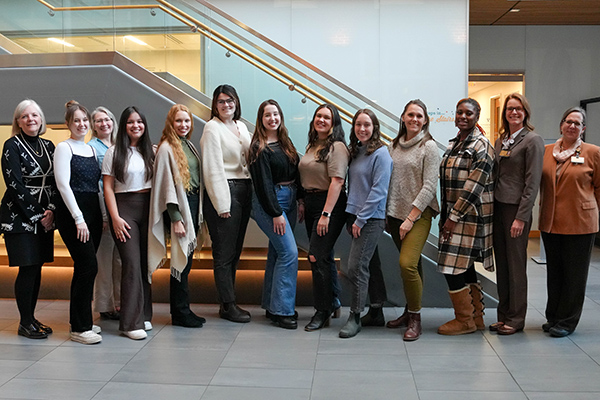Vanderbilt University School of Nursing has received a $4 million grant from the Health Resources and Services Administration to increase and diversify the nurse-midwife workforce as a means of improving maternal health and increase access to care. The school will use the Maternity Care Nursing Workforce Expansion grant to educate nurse-midwifery students with a specialized curriculum and community-based clinical experiences focused on providing care in rural and underserved communities.
Students selected for Vanderbilt’s Midwifery-Education—Access and Diversity for Optimizing Workforce (MEADOW) program will also receive scholarships and stipends totaling $56,000 over three semesters.

“More women die from childbirth in the U.S. each year than in any other high-income country. Increased access to pre- and perinatal health care from nurse-midwives and other providers can reduce that rate,” said Professor of Nursing Julia Phillippi, PhD, MSN’99, CNM, FACNM, FAAN, and principal investigator on the grant. “Research has shown that highly trained certified nurse-midwives can address nationwide maternity care shortages and improve maternal and neonatal outcomes, including decreasing maternal mortality.”
Vanderbilt’s MEADOW program will have two components: equipping nurse-midwifery students for practice in rural or underserved communities and recruiting nurse-midwifery students from diverse backgrounds.
VUSN has partnered with clinic sites from rural and underserved areas so MEADOW trainees will have clinical rotations in rural or underserved areas and sessions specific to employment in such sites. Because midwifery students must have more than 800 hours of clinical training—providing perinatal care and attending births—having clinical rotations in underserved areas is an important component of training a workforce ready to serve these populations. Students who gain such experience are more likely to choose similar settings for employment.

VUSN has developed new curricular content for all its nurse-midwifery students about social determinants of health, telehealth, rural care and provision of medication for opioid use disorders. MEADOW students will receive high-quality clinical training with a focus on providing locally appropriate, culturally sensitive care that meets the perinatal health needs of rural and underserved populations. Trainees also will take an additional course on advanced behavioral health focused on care for mental health conditions in pregnancy and postpartum.
Vanderbilt expects that the new MEADOW program will be a draw for incoming nurse-midwifery students, and that it will appeal to students from diverse backgrounds. There is a need for diversity in midwifery and nursing, Phillippi said, as currently, about 90% of nurse-midwives are white. A more diverse workforce will better welcome and serve all individuals and help them receive the care they need. Increasing diversity in midwifery will reduce bias in maternal care, resulting in better outcomes for both mothers and children..
The award is part of nearly $90 million in awards that HRSA is investing in maternal health in support of the White House Blueprint for Addressing the Maternal Health Crisis (https://www.whitehouse.gov/wp-content/uploads/2022/06/Maternal-Health-Blueprint.pdf)
It is supported by the Health Resources and Services Administration (HRSA) of the U.S. Department of Health and Human Services (HHS) under grant number 1 T68HP52014‐01‐00 as part of an award totaling $4 million with 0% percentage financed with non-governmental sources. The contents are those of the author(s) and do not necessarily represent the official views of, nor an endorsement, by HRSA, HHS, or the U.S. government. For more information, please visit HRSA.gov.